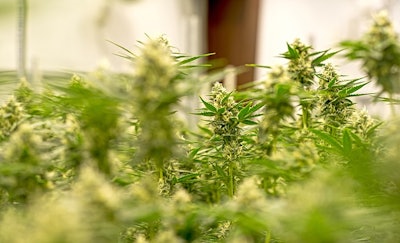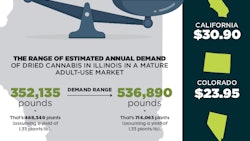
New applicants for cannabis business licenses in Canada must now have a “fully built site” to show regulatory officials before submitting an application. This will affect prospective cultivation and processing businesses in the country’s legal adult-use market, as well as retailers planning to serve the medical market (adult-use retailers are regulated by provincial governments).
This new policy is effective immediately.
The change comes in response to recent trends. Health Canada reports that “more than 70 percent of applicants who successfully passed Health Canada’s initial paper-based review of their application over the past three years have not yet submitted their evidence package to demonstrate to the Department that they have a built facility that meets the regulatory requirements.”
Under the previous system, business applicants needed only to have a site identified in their submitted plans.
“If Health Canada is making these changes so it can significantly speed up the process of licensing, then that’s good,” Trina Fraser, partner at Brazeau Seller Law, told the Financial Post. “But if this is going to make it harder for new producers to begin growing, I’m not sure if it is going to help with the shortage issue.”
Department officials assert that this discrepancy is costing “a significant amount of resources” to redress. The net result: long delays on “more mature applications” from cannabis businesses ready to roll.
As far as the hundreds of business applications currently in the Health Canada queue, officials will complete a “high-level review” of those materials. Those that get the conceptual green light will then have the opportunity to build out their facilities and get back in line (at which point the department will review the materials in detail, “in priority based on the original application date”).
Fraser tweeted that it’s not clear what a “high-level review” means.
Health Canada issued additional guidance in tandem with its policy announcement, with the intent to nudge business applicants toward Good Production Practices and physical security measures.
“Building on changes made in 2017 and 2018,” a Health Canada press release states, “the new approach responds to feedback from applicants about the time it can take to become licensed and the fact that there is now a larger number of applicants seeking to enter a growing and maturing legal market.”
As of May 2019, Health Canada has issued 177 licenses. In all, those business include more than 600,000 square meters of cannabis cultivation space.
With plans to expand that marketplace, Health Canada’s decision rewrites the script.
“We go from a situation where if you wanted to submit an application, you submit your paperwork and you sit and wait to hear back from Health Canada,” Matt Maurer, a cannabis attorney with Torkin Manes LLP, told BNN Bloomberg May 8. “Now you’re asked to build a $30-million to $40-million facility before you even submit your application.”


























